'Burn Down Racism': World Rallies Against George Floyd's Death
Taking a knee, banging drums and ignoring social distancing measures, outraged protesters from Sydney to London on Saturday kicked off a weekend of global rallies against racism and police brutality.
The death at police hands of George Floyd, an unarmed black man in the US state of Minnesota, brought tens of thousands out onto the streets during a pandemic that is ebbing in Asia and Europe but spreading in other parts of the world.
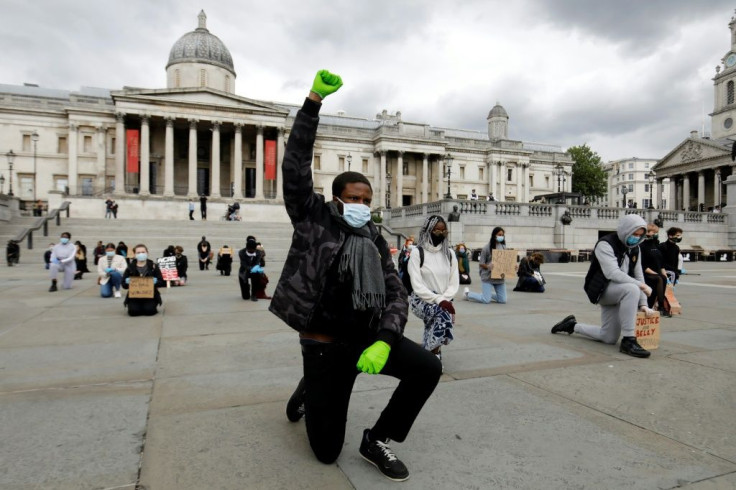
"It is time to burn down institutional racism," one speaker shouted through a megaphone at a hooting crowd of thousands outside the parliament building in London.
"Silence is violence," the throng shouted back in the rain, before mounted police moved in to disperse a small missile-pelting crowd trying to push its way closer to Downing Street.
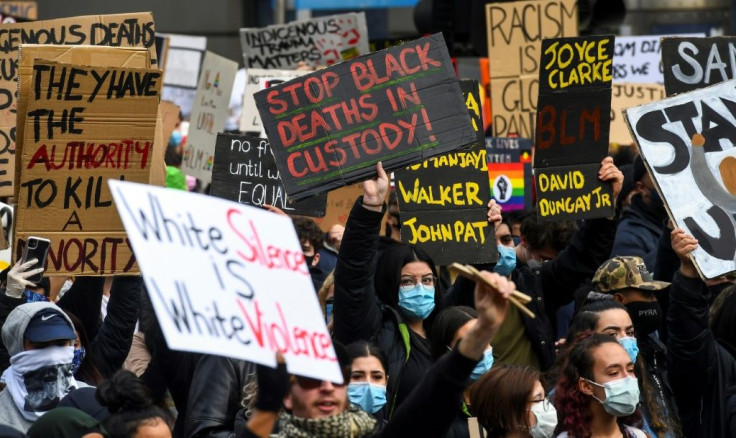
Thousands more marched in the northern English city of Manchester.
Officials around the world have been trying to balance understanding at people's pent-up anger with warnings about the dangers of a disease that has officially claimed nearly 400,000 lives globally.
Yet tens of thousands of Australians defied Prime Minister Scott Morrison's call to "find a better way", tens of thousands marched in France, and thousands more in Britain ignored the health minister's warning.
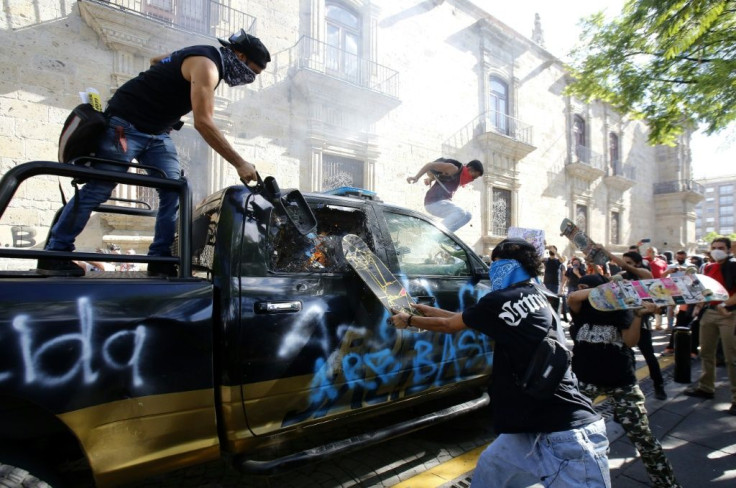
And in Tunis, hundreds chanted: "We want justice! We want to breathe!"
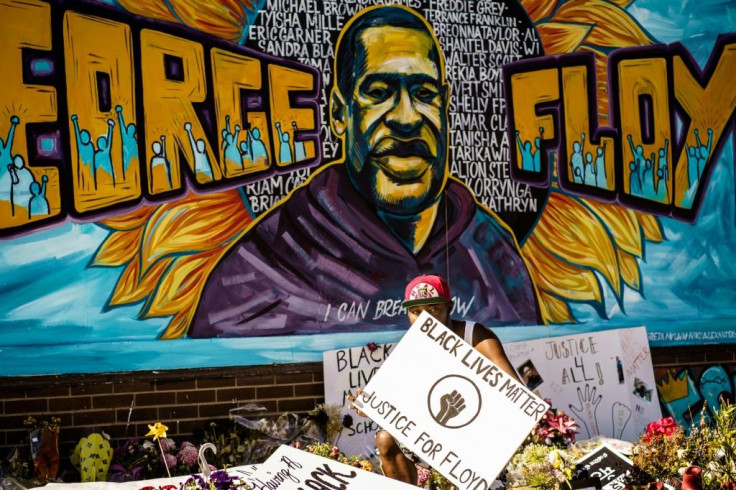
In Sydney, aborigines performed a traditional smoking ceremony at the start of a "Black Lives Matter" protest, which was allowed at the last minute after initially being banned on health grounds.
Many held up signs and wore face masks marked with the words "I can't breathe" -- the words Floyd kept saying while handcuffed as a policeman knelt on his neck.
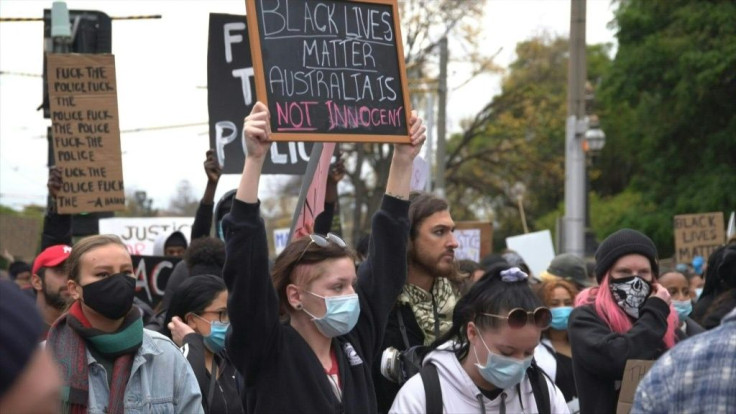
One placard simply read "8:46" -- the amount of time the 46-year-old was pinned to the ground by the white officer before his death.
Floyd's death came during the spread of a disease that has disproportionately affected black people and ethnic minorities in global centres such as London and New York.
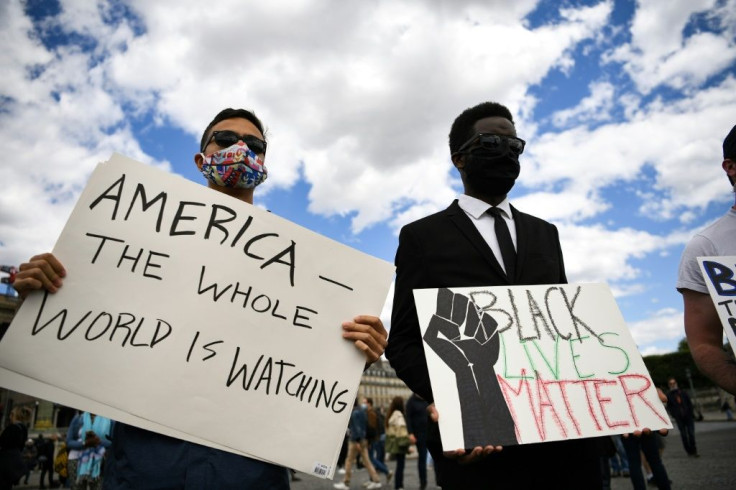
It also came in the throes of a historic economic downturn that has statistically affected the poor and marginalised the most vulnerable.
This, and the outrage at US President Donald Trump's response, has refocused attention on the world's racial divides like few other events since the 1960s.
In Paris, riot police held back a crowd of several thousand who gathered outside the US embassy for an unsanctioned protest.
"I've had racist abuse all my life," said one demonstrator, 46-year-old Nadine. "That is our life. To be a black French woman in France, it's not easy."
A protest in the French city of Metz ended with a few dozen people breaking into a courthouse and scuffling with security guards and one of the city's prosecutors.
"Protesters held up placards reading "Being black is not a crime" and "Our police are assassins".
According to interior ministry figures, 23,000 people demonstrated in cities across France, 5,500 of them in Paris.
Smaller, youth-driven protests were staged outside US embassies in Warsaw and Sofia. In Germany, Bundesliga footballers warmed up in "Red card to racism #BlackLivesMatter" shirts and took a knee prior to kickoff.
"How many more?" asked a poster held up in a crowd of thousands in Frankfurt, while hundreds rallied across town squares of Belgium and the Netherlands.
In North Carolina, a long line of cars snaked its way down a highway as mourners arrived for a viewing and memorial service at a church not far from Floyd's hometown.
In Washington, hundreds knelt and applauded in the street ahead of another mass rally, where Mayor Muriel Bowse has renamed the area outside the White House "Black Lives Matter Plaza".
"I think what the Americans are doing is brave and they should be angry, but rioting is not the solution," said Yassin Alaa, a 20-year-old camped out in Baghdad's Tahrir Square, the site of months of anti-government protests.
© Copyright AFP 2024. All rights reserved.




















